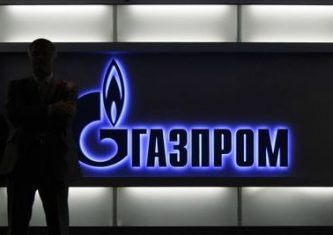
 May 28, 2013 • Analysis •
May 28, 2013 • Analysis •
Up to now, no one has really doubted that the Russian State and Gazprom have overlapping interests on European energy markets. The State gas company’s projects fit within the State’s policies towards Europe. There is a coincidence of positions between both players, Gazprom relaying and implementing Russia’s State strategy to the European Union (EU). Hence, a largely-shared analysis among European policy-makers that Gazprom is the energy armed wing of the Russian government, its tool, one of its levers for action. That Thomas More Institute Note strongly questions this too easy approach. By highlighting Gazprom’s corporate and economic strategies in Europe, it presents a more nuanced picture of Russian energy positions within and towards our markets.
2012, Gazprom has lost shares on European gas market. For the first time since long, Norway has become the first gas supplier to the EU, reaching 1/3 of EU imports, whereas Gazprom’s share, due to a lack of flexibility to adjust gas prices, has fallen to a bit less than 1/3 of EU imports. The other third is divided between additional minor suppliers (Algeria, Nigeria, Qatar…). Last year indeed, following the US shale gas revolution and in a world depressing economic context, gas price starts to fall down, including in Europe. European buyers then tried to renegotiate their contract with Gazprom with much difficulty . Consequently, they fulfilled their obligations from the Russian supplier at minima and bought the remaining needed volumes on the spot market or from Norway at cheaper price, reducing so Gazprom’s market shares.
Russia’s position on the energy chapter within the Partnership and Cooperation Agreement may hinder the gas company to react. Negotiations between the two parties are frozen, the EU advocating an inclusive approach whereas Russia is demanding a separate agreement on energy infrastructures with many legal exemptions from the European law and particularly from the Third Energy Package. Gazprom of course could have interest into these exemptions but needs also more urgently to regain its shares or at least to maintain them. Gazprom cannot only be a political tool. It must balance accounts, make and increase profits as much as possible to ensure productive investments while limiting and rationalizing spending. There is clearly, in addition to any political functions, an economic rational in Gazprom’s strategy. Both, Gazprom and the Russian State obviously do not have the same timing.
The present research paper, hosted by the Thomas More Institute, argues that Gazprom seeks to become and to act as a normal economic European actor. This commitment leads the Russian gas company hold at 50,002% by the Russian State, to look for more flexibility and compromise, opposing on some specific matters its main shareholder’s more rigid political stance. Gazprom and Russia’s respective rational simply start diverging. They do in Europe but in Russia as well. Gazprom seemingly tends to look for its own strategic path. Relying on first-hand sources from the European Institutions (General Secretariat of the Council, DG Energy, Desk Russia at the European External Action Service) and from Russian official representations, notably Valery Yazev, head of the Russian Gas Society and Duma’s deputy chairman, that report presents a balanced picture of what are today Russia’s complex interests in Europe.
